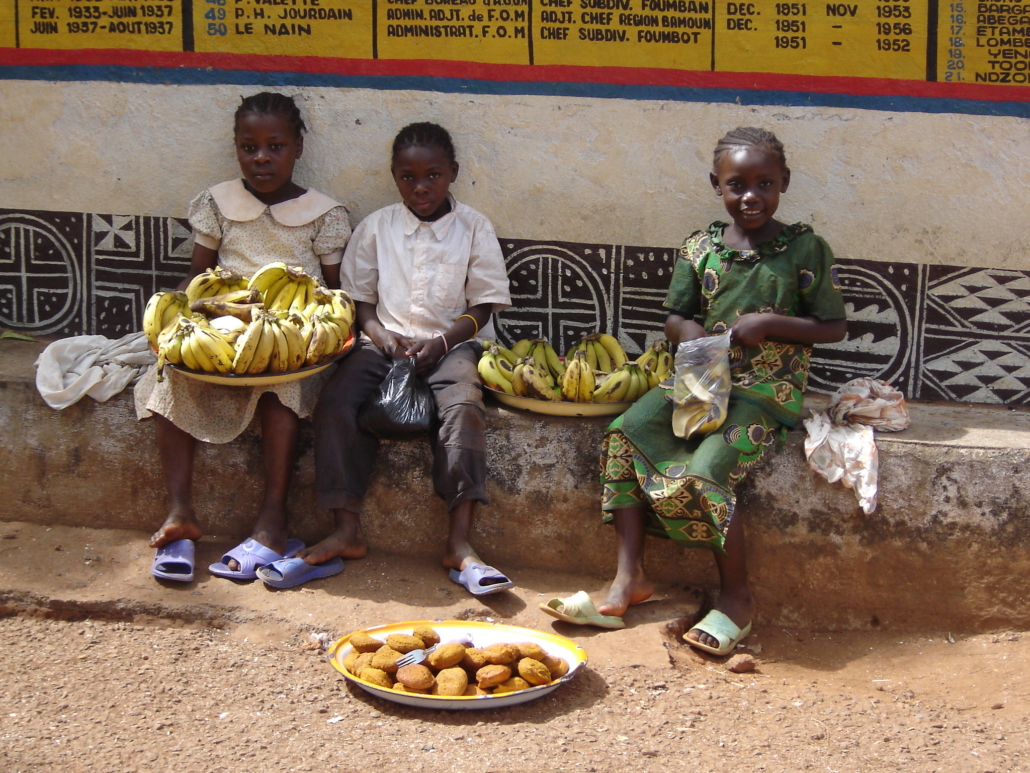How the Sweet Potato Can Relieve Poverty in Cameroon
 While Cameroon has abundant natural resources, historically, it has depended on wheat imports to sustain its population and prevent food insecurity. However, exacerbated by COVID-19 and the war in Ukraine, Cameroon is experiencing severe wheat shortages, threatening to push many households into poverty. With many local food producers now seeking alternatives to wheat, a solution may be on the horizon as more and more are turning to locally produced flour like sweet potato flour. This article will, therefore, examine how the sweet potato can relieve poverty in Cameroon.
While Cameroon has abundant natural resources, historically, it has depended on wheat imports to sustain its population and prevent food insecurity. However, exacerbated by COVID-19 and the war in Ukraine, Cameroon is experiencing severe wheat shortages, threatening to push many households into poverty. With many local food producers now seeking alternatives to wheat, a solution may be on the horizon as more and more are turning to locally produced flour like sweet potato flour. This article will, therefore, examine how the sweet potato can relieve poverty in Cameroon.
What is the Problem?
Cameroon is a large Central African country situated on the Gulf of Guinea. An ethnically diverse place, its population stands at around 27 million people, almost half of whom live in rural areas. While Cameroon has experienced moderate growth since its Independence, it has been beset by economic stagnation and high inflation in recent years.
A major importer of essential resources such as wheat, vegetable oil and meat, this crisis is due to disruption to these global value chains due to the COVID-19 pandemic and the ongoing war in Ukraine. Rising food prices and stalling wages mean that many Cameroonians face the prospect of falling into poverty. As a result, 11% of the population faces acute food insecurity; worryingly, this number will likely increase by 45% compared to last year.
For many Cameroonians, wheat is a dietary staple consumed in high volume as pasta and bread. However, as a non-wheat-producing country, Cameroon completely depends on imports, 46% of which come from Russia. However, the war between Russia and Ukraine has severely affected global exports. This has created wheat shortages around the world and pushed up its price.
In Cameroon, for example, the cost of a kilogram of wheat flour rose from 500 FCFA in February to 600 FCFA in May, an increase of 69% compared to pre-pandemic levels. Not only has this meant businesses are struggling with increased production costs, but the government has also needed to raise the price of bread (a commodity that the government tightly regulates). These price increases will reduce the purchasing power of many Cameroonian households and increase poverty.
An Alternative
However, as the government has sought to contain the volatility in the wheat market, many are turning to an alternative form of flour made from sweet potato. Already an essential crop in many East African countries, the sweet potato has received significant attention as a cheap, easy to grow and sustainable food source due to its high yield in various climates and ability to withstand drought. However, it is nutritionally rich in carbohydrates, vitamins A, B and C, and minerals like phosphorus, iron and calcium. On a continent plagued with Vitamin A deficiency (which can lead to blindness, disease and premature death), it is hoped that the sweet potato can relieve poverty in Cameroon as it offers promising solutions to malnourishment, food insecurity and poverty.
What Has Been Happening?
With wheat prices rising to unsustainable levels, the crisis reached breaking point when the Cameroonian Association of Millers suspended deliveries of wheat flour. However, stepping in to quell the fears of many business owners and consumers, in 2011, the President of the National Union of Bakery Owners, Jean Claude Yiepmou Kapwa, pointed out that sweet potato flour can replace wheat in 80% of everyday recipes. Local entrepreneurs successfully producing flour from wheat alternatives such as sweet potato and cassava have now been adopting this idea. While flour makes baked products that taste sweeter and are slightly dryer, overall, its production has been praised by some government ministers supporting the diversification to alternative forms of flour.
A great example of where sweet potato flour is successfully replacing wheat is through Yaoundé baker Guy Marcel Ngata. Ngata has been making baguettes with sweet potato, cassava and other legumes for the past 13 years. Ngata points out that switching wheat to local flour alternatives has kept his production costs down and increased his profits. Importantly, like other bakeries in Cameroon, the switch has also kept him solvent. But bakers have not been the only ones to feel its benefits. As Adeline Pelage, owner of Bobo Biscuiterie in Douala, explains, sourcing flour from local cooperatives and farms supports agriculture in areas of the country that traditionally have been very poor. This demonstrates how the sweet potato can relieve poverty in Cameroon.
Conclusion
As Cameroon, like many other wheat-importing, developing nations, struggle to contain the volatility of the wheat market, it can take encouragement from the initiatives of many Cameroonians who are actively seeking alternatives to wheat to ensure they can still receive a livelihood. Moreover, by turning to locally sourced flour, many food producers are ensuring that bread prices will remain low and that important income sources reach the country’s poorest parts. This helps show how the sweet potato can relieve poverty in Cameroon.
– Cameron Mason
Photo: Flickr
